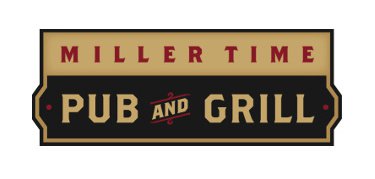
Manager Harvey Kuenn had the magic touch in the 1982. In 1983, he was left searching for answers.
No matter how the Brewers finish this year, it would not be fair to classify 2017 as a genuinely disappointing season. Like 2014, when the Brewers were an out-of-nowhere contender that ran out of gas down the stretch, this year’s club has far outpaced their expectations, and even if it does come with a letdown at the end, 2017 must be regarded as an overall pleasant surprise. And any sour feelings that might come at season’s end won’t compare to the most disappointing season in franchise history, the 1983 follow-up to their lone pennant-winning campaign.
By the roster sheet, the 1983 Brewers looked a lot like the 1982 team. The only off-season move the team made was to resign pitcher Bob McClure. But there were a couple of big question marks on the roster, with reigning Cy Young winner Pete Vuckovich’s elbow so badly damaged he was likely to miss the entire 1983 season and Rollie Fingers still recovering a torn arm muscle. The Brewers were also a year older, with the projected regulars averaging over 32 years old. While The Sporting News and Street and Smith projected the Brewers to repeat as AL East champions, the team was picked by most as a second or third place club, behind the Orioles and Yankees.
But enthusiasm in Milwaukee was very high. Local sportswriters defied the national trend and unanimously declared the Brewers as AL favorites. Fans mobbed the box office, leaving the team to project 1983 as a record-setting year for attendance. And the players themselves swaggered into opening day. “First we had a taste of the pie. Then we got a slice of the pie. Now we want the whole pie,” slugger Gorman Thomas declared.
![]() Stay on top of the news of the day
Stay on top of the news of the day
Subscribe to our free, daily e-newsletter to get Milwaukee's latest local news, restaurants, music, arts and entertainment and events delivered right to your inbox every weekday, plus a bonus Week in Review email on Saturdays.
Like the ’82 team, the Brewers struggled out of the gate in 1983, barely above .500 by the end of the May. While the tepid open in 1982 was mostly attributed to the gruff style of Manager Buck Rodgers, the lifeless start to 1983 was laid partially on Rodgers’ replacement, Harvey Kuenn. Kuenn’s hands-off style was criticized as a lack of strategy and oversight. This was most evident in Thomas, a Kuenn favorite who remained in the lineup despite looking utterly helpless at the plate and drawing resentment from his teammates for his lazy off-the-field habits. Considering trading the slugger since spring training, the Brewers shipped him to Cleveland for Rick Manning on June 7 in an attempt to shake up the club.
It didn’t work. For most of June, the team lingered in last place. But following the All-Star Game, the team suddenly sprung to life. Cecil Cooper, Ted Simmons and Paul Molitor each got red-hot at the plate and reliever Pete Ladd, filling in for a still-injured Fingers, rebounded from an early-season slump to become the team’s most effective bullpen arm. Kuenn was more active in the dugout and Manning, having replaced Thomas in centerfield, was performing well. Starting on July 12, the team went on a 24-9 tear, moving from fifth place and 6.5 games back to one game up on the second place Tigers.
But as quickly as they had regained it, the Brewers lost their momentum. On August 26, the team was bounced from first place after a 4-3 loss to Oakland. For the next two weeks, the Brewers lost five games in the standings as the Yankees, Tigers and Orioles all surged. Then came the collapse. The Brewers dropped ten straight games as their offense disappeared. In six of the ten games, the Brewers were either shutout or scored only a single run. By the streak’s end, the Brewers – in first place less than a month before – had been eliminated from playoff contention.
The streak had also sealed the fate of manager Harvey Kuenn. General Manager Harry Dalton had actually wanted to move past Kuenn after the 1982 season, upset at how the team had played down the stretch. Unable to can him after the World Series trip, Dalton now had plenty of cover to make his move. And Dalton was not alone in his assessment of Kuenn as a manager. “The personal feelings for him within [the Brewers] family,” the Milwaukee Journal wrote just after the losing streak, “are in no way matched by professional respect for him.” There was already speculation that the Brewers might bring back George Bamberger or hire former player Sal Bando to lead the club for ’84. No one seriously thought that Kuenn would return.
Two weeks later, the Brewers season mercifully ended with a three-game sweep of the Tigers. The Brewers finished with a respectable 87-75 mark, but it was not enough to save Kuenn, who was fired on the last day of the season.
The dreams of a repeat trip to the World Series faded fast that summer in Milwaukee. It would be the last time the team would seriously contend for a decade and would bring about some of the least-inspiring seasons in club history. The Brewers could hang on and shock the world in 2017 or they could fall back behind the preseason favorites. But either way, while 1983 will be remember for the great season that could have been, 2017 should be remembered as the lousy season that never was.
|
|
